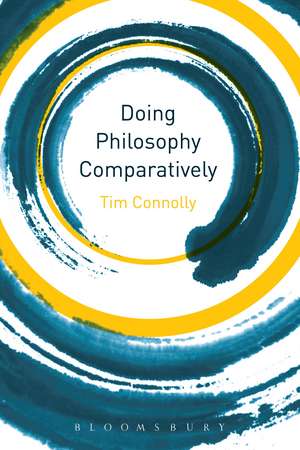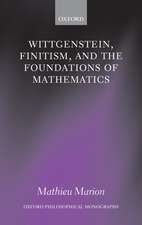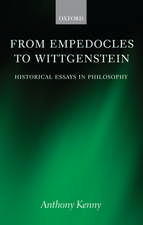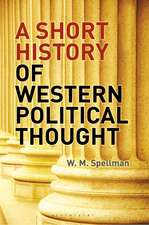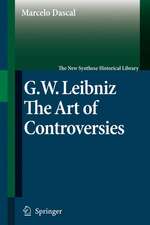Doing Philosophy Comparatively
Autor Tim Connollyen Limba Engleză Paperback – 17 iun 2015
| Toate formatele și edițiile | Preț | Express |
|---|---|---|
| Paperback (2) | 136.87 lei 3-5 săpt. | +37.51 lei 4-10 zile |
| Bloomsbury Publishing – 25 ian 2023 | 136.87 lei 3-5 săpt. | +37.51 lei 4-10 zile |
| Bloomsbury Publishing – 17 iun 2015 | 186.35 lei 6-8 săpt. | |
| Hardback (2) | 409.10 lei 6-8 săpt. | +89.75 lei 4-10 zile |
| Bloomsbury Publishing – 25 ian 2023 | 409.10 lei 6-8 săpt. | +89.75 lei 4-10 zile |
| Bloomsbury Publishing – 17 iun 2015 | 832.26 lei 6-8 săpt. |
Preț: 186.35 lei
Preț vechi: 215.26 lei
-13% Nou
Puncte Express: 280
Preț estimativ în valută:
35.67€ • 38.76$ • 29.98£
35.67€ • 38.76$ • 29.98£
Carte tipărită la comandă
Livrare economică 22 aprilie-06 mai
Preluare comenzi: 021 569.72.76
Specificații
ISBN-13: 9781780938394
ISBN-10: 178093839X
Pagini: 208
Dimensiuni: 156 x 234 x 20 mm
Greutate: 0.41 kg
Editura: Bloomsbury Publishing
Colecția Bloomsbury Academic
Locul publicării:London, United Kingdom
ISBN-10: 178093839X
Pagini: 208
Dimensiuni: 156 x 234 x 20 mm
Greutate: 0.41 kg
Editura: Bloomsbury Publishing
Colecția Bloomsbury Academic
Locul publicării:London, United Kingdom
Caracteristici
Comprehensive surveys of various comparative approaches ensures firm grounding in each of the main methods
Notă biografică
Tim Connolly is an Associate Professor of Philosophy at East Stroudsburg University, USA. He teaches and writes about Chinese philosophy and ancient Greek philosophy.
Cuprins
AcknowledgementsIntroductionPart I: The Nature of Comparative Philosophy1. Is There Such a Thing as Comparative Philosophy? The Legitimacy of "Non-Western philosophy" What is "philosophy" in comparative philosophy? The "Comparative" Aspect Conclusion2. Two Dimensions of Comparison A First Look at the Two Dimensions The Interpretive Dimension: Comparing to Understand The Constructive Dimension: Comparing to Make Philosophical Progress Conclusion3. The Role of Tradition and Culture Tradition and Philosophy Culture Which Traditions? ConclusionPart II: The Problems of Comparative Philosophy4. Linguistic Incommensurability Background on the Term The Linguistic Relativity Thesis Understanding Other Languages Issues for Comparative Philosophers Conclusion5. Foundational and Evaluative Incommensurability Foundational Incommensurability Evaluative Incommensurability Conclusion6. One-sidedness The Meaning of One-sidedness Avoiding One-sidedness Conclusion7. Generalization Cultural Essentialism The Generalizations Debate Generalizations and Evidence ConclusionPart III: Approaches to Comparison8. Universalism Varieties of Universalism Challenges and Criticisms Conclusion9. Pluralism The Case for Pluralism Criticism and Evaluation Conclusion10. Consensus Consensus in Theory and Practice Evaluating the Consensus Approach Conclusion11. Global Philosophy The Challenge of Global Philosophy External Criticism Global Problem-Solving ConclusionConclusionBibliographyIndex
Recenzii
The author faces the topics [in this book] in a concise but thought-provoking manner ... [and] outlines the discipline in an exciting way ... [A] vibrant introduction to comparative philosophy.
This is a highly recommendable book not only for undergraduate courses but for the general public interested in the exchange of ideas between "cultures" and "philosophies." Connolly set out to perform an important and difficult task. He has succeeded.
[A]n up-to-date and very informative book ... [and] an excellent starting point for anyone interested in the field of comparative philosophy. ... Tim Connolly has established a benchmark for the study of comparative philosophy ... by offering a clear summary of the key issues and by providing a platform for nurturing future philosophers to think beyond their localized perspectives.
An excellent resource to help students through the tangled territories of comparative philosophy - this much needed text renders complex issues accessible to new-comers to the field without over-simplifying. It is clearly written, engaging in style, and balanced in its discussion and presentation of the debates about what comparative philosophy is, could, and should be.
Defending a truly comparative approach to philosophy is more complex than simply dealing with different languages and cultures: most introductions to philosophy include only Western philosophy, thus implying that the major philosophical traditions are to be found in the West. In this well-written, jargon-free textbook, Connolly (East Stroudsburg Univ.) sensitively addresses the worthiness and significance of comparative philosophy while also acknowledging the difficulties that arise from a comparative approach. The basic concepts the author develops can be readily applied to a variety of Western traditions as well as to philosophy in a more general sense. Each of the 11 chapters concludes with rich suggested readings and discussion questions that will serve well in classroom settings. This volume marks an extraordinary step forward in comparative philosophy, and this reviewer knows of no better guidebook. An invaluable resource for those pursuing a career in comparative philosophy. Summing Up: Highly recommended. Graduate students, researchers, faculty.
This is a highly recommendable book not only for undergraduate courses but for the general public interested in the exchange of ideas between "cultures" and "philosophies." Connolly set out to perform an important and difficult task. He has succeeded.
[A]n up-to-date and very informative book ... [and] an excellent starting point for anyone interested in the field of comparative philosophy. ... Tim Connolly has established a benchmark for the study of comparative philosophy ... by offering a clear summary of the key issues and by providing a platform for nurturing future philosophers to think beyond their localized perspectives.
An excellent resource to help students through the tangled territories of comparative philosophy - this much needed text renders complex issues accessible to new-comers to the field without over-simplifying. It is clearly written, engaging in style, and balanced in its discussion and presentation of the debates about what comparative philosophy is, could, and should be.
Defending a truly comparative approach to philosophy is more complex than simply dealing with different languages and cultures: most introductions to philosophy include only Western philosophy, thus implying that the major philosophical traditions are to be found in the West. In this well-written, jargon-free textbook, Connolly (East Stroudsburg Univ.) sensitively addresses the worthiness and significance of comparative philosophy while also acknowledging the difficulties that arise from a comparative approach. The basic concepts the author develops can be readily applied to a variety of Western traditions as well as to philosophy in a more general sense. Each of the 11 chapters concludes with rich suggested readings and discussion questions that will serve well in classroom settings. This volume marks an extraordinary step forward in comparative philosophy, and this reviewer knows of no better guidebook. An invaluable resource for those pursuing a career in comparative philosophy. Summing Up: Highly recommended. Graduate students, researchers, faculty.
